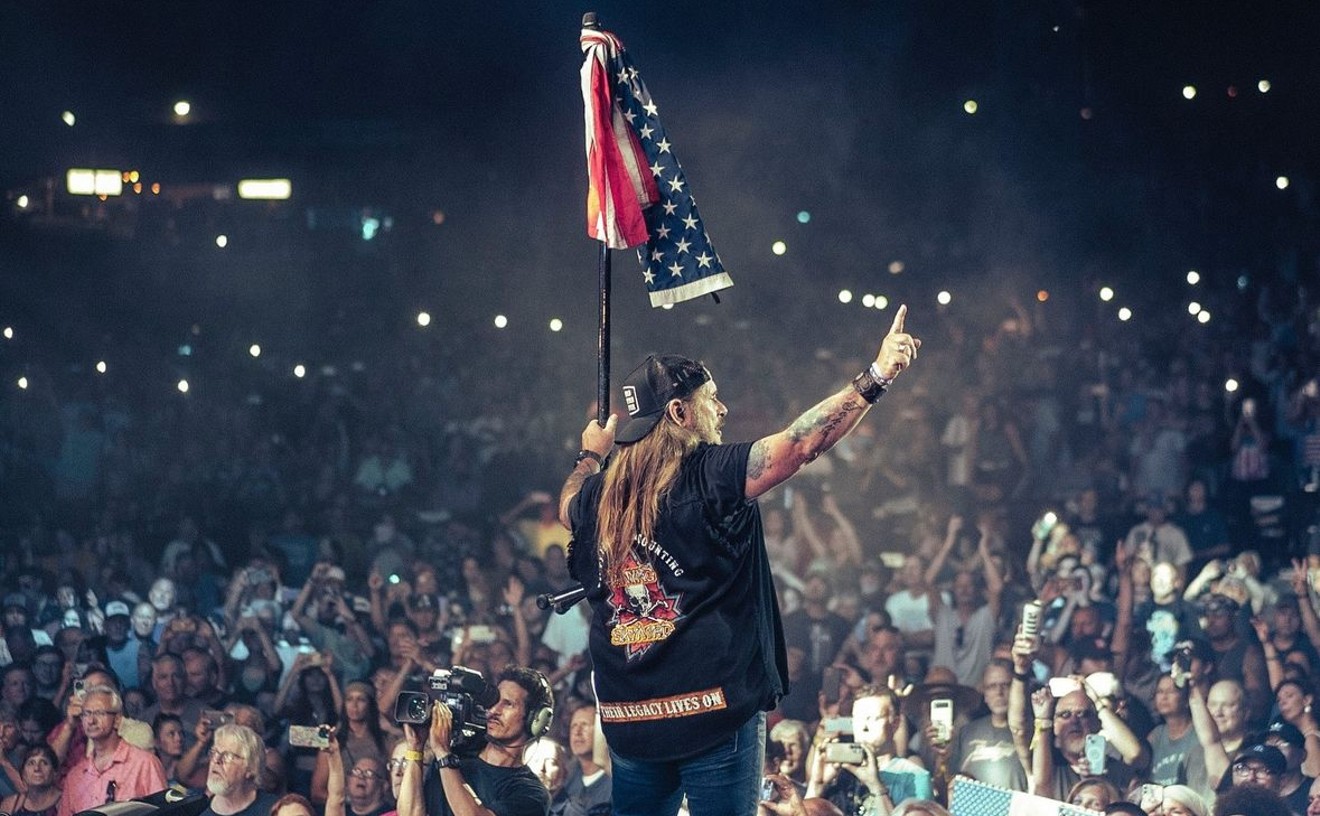The Black Crowes, Vetiver
Saturday, Dec. 13
Fillmore Auditorium
Better than: Revisiting the sounds of '60s soul and '70s rock with a middling bar band.
"I swear I've heard that riff before." That was the recurring thought as I watched the Black Crowes and Vetiver perform Saturday, as the solos, the vocal lines and the song structures recalled countless precedents, from the Allman Brothers to Lynyrd Skynyrd.
The consistent sense of déjà vu did not come as a surprise. The Black Crowes have never been shy about paying homage to their musical heroes, whether it be in covering Otis Redding or borrowing heavily from sound textures first pegged by rock legends. Depending on your point of view, the band's pattern of musical resuscitation can either seem admirable or sacrilegious - some would revel in the revamped sounds of past masters, while others decry the effort as unoriginal and stale. Saturday's performance left me somewhere in the middle.
Both the Crowes' and Vetiver's sets were unassailable in their sound, their musicianship and their content. Both bands delivered lengthy sets marked by high energy, tight solos and a balanced sound mix. The dense crowd packed onto the Fillmore's floor and in its wings never lacked enthusiasm.
But the bands' live voodoo grew tiresome rather quickly. Even as someone who grew up with a steady diet of classic rock and soul, and even as someone who still holds that music as my baseline, the familiar musical cues failed to excite or inspire as the show wore into its second hour.
As an opening band, Vetiver laid a solid foundation for the show that was to follow. With a straightforward and unadorned vocal style, lead singer and guitarist Andy Cabic helped to keep the set grounded and approachable as the crowd streamed in.
With steady, plodding rhythms and a range of sound cues pulled from American folk and rock, Vetiver delivered a set that, at its high points, was engaging, fluid and approachable. Songs like "Another Reason to Go," "I Know No Pardon" benefited from the sounds of Eric Johnson from the Fruitbats on keyboards and lap steel guitar and Kevin Barker from Currituck Co. on bass. The Black Crowes' Adam MacDougall also joined the band on keyboards.
While the Vetiver set was solid, its weakness was one that
characterized the whole night. The group's sound - rooted in the
plaintive strains of American folk and the fuzzy solos of '60s rock -
tread territory that was all too familiar. Vetiver seemed to channel a
wide range of '60s bands - including Crazy Horse, Country Joe and the
Fish and the Band - and a few contemporary ones, too, with Wilco and
the Wallflowers being the most obvious.
After a 45-minute opening set, Vetiver packed up and the Crowes didn't waste much time in starting their set.
Opening up with "Movin' On Down the Line," the Black Crowes quickly established a high energy level and a pattern of virtuosic solos and vocal flourishes. The opening tune featured a solo from frontman Chris Robinson on harmonica and some musical acrobatics from MacDougall on keys, and Rich Robinson and Luther Dickinson on guitars.
But the echoes of past giants were inescapable from the very beginning. The opening keyboard riff of "Movin'" bore an undeniable resemblance to Led Zeppelin's "No Quarter" from Houses of the Holy.
As the Crowes' set progressed and the band played more tunes from their new album, Warpaint, such parallels continued. Newer songs like "Goodbye Daughters of the Revolution," "Whoa Mule" and "Oh Josephine" melded well with older tunes like "Wiser Time" and "Could I've Been So Blind" from the Shake Your Money Maker and Amorika albums. But whiffs of rock giants from Skynyrd to Jimmy Paige, and Credence Clearwater Revival to the Zombies didn't stop.
That's not to say the band's paeans weren't admirable. During extended solos, MacDougall laid down some keyboard lines worthy of George Duke in their sheer funkiness, and both Robinson and Dickinson enjoyed some dynamic solos. Even drummer Steve Gorman showed his chops on several solos, included a spate on congas.
The Crowes' set also featured a reappearance from Vetiver for a pair of acoustic tunes, a cameo that saw the large ensemble partake in group vocals and lengthy solos. The Crowes-cum-Vetiver offered decent covers of both Bob Dylan's "You Ain't Going Nowhere" and the traditional gospel song "Will the Circle Be Unbroken?"
After Vetiver departed, the Crowes continued with their mix of older and newer material. "Thorn in My Pride," "High Head Blues," "Downtown Money Waster" and "Remedy" all received extended treatments, featuring jams that were at times straightforward, and at others abstract in their structure. The sheer length of some of the solo sessions became arduous as the set progressed and the guitarists showed no signs of self-editing.
The Crowes' set spanned more than two hours, and the band kept up an impressive degree of energy and chops throughout. The songs came off smoothly, and the milling crowd ate up every note. But somehow, the night lacked any memorable dynamism. I felt as if I'd heard all of these sounds and structures, and from artists who were much more capable and original.
If asked to isolate a poorly performed guitar solo, an off-key vocal or a song that lacked cohesion, I wouldn't be able to. But the show proved that being well-rehearsed and versed in soloing doesn't equal originality.
-- A.H. Goldstein
Critic's Notebook:
Personal bias: I was
fortunate enough to be seated next to a drunken band of over-the-hill
groupies, one of whom insisted on grabbing my notepad and pen and
exhorting me to participate in the group's frenzied arm waving. It was
enough to detract from the set.
Random detail: The band omitted one of its best known singles, "She Talks to Angels," from the set.
By the way: The large crowd at the Fillmore rivaled
the turnout for Rise Against and Ween, two of the most packed shows I
attended in 2008 at the same venue.











